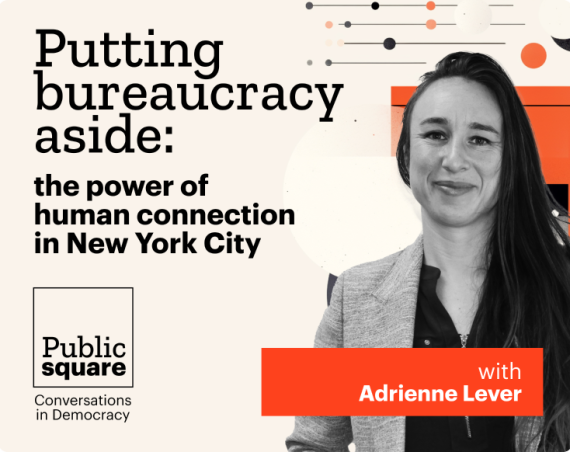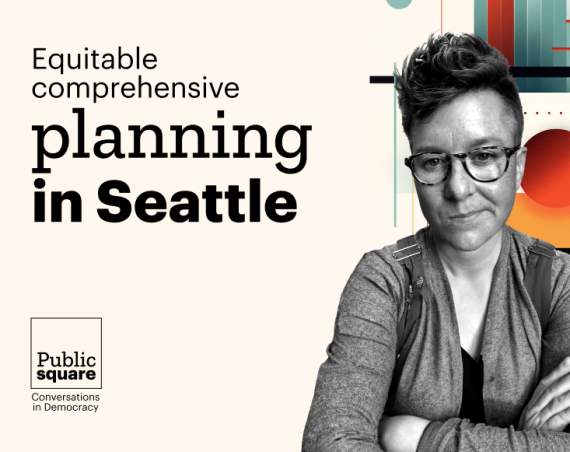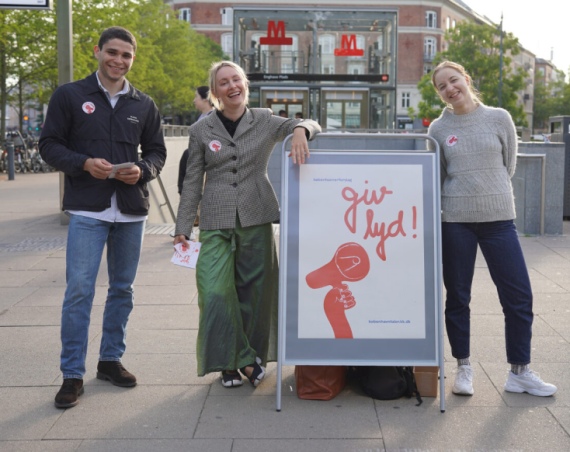Declining levels of youth political participation pose a challenge to many democracies. Young people seem to have lower levels of political engagement when it comes to participating in traditional political activities such as voting and joining political parties. So how can you get the youth to participate in your local community engagement projects?
Here are the main takeaways from our webinar (recording below) with Jez Hall, Founding Director Shared Future CIC, and Donna Anderson, Youth Participation and Democracy Officer at the North Ayrshire Council in Scotland.
1. Reach them where they are
To implicate young people, Donna Anderson explains, you have to reach them where they are. A lot of young people don’t connect through classic political structures or democracy routes. The North Ayrshire Council has therefore created Youtube, Instagram, Twitter, Facebook, Snapchat, and Tik Tok accounts to reach a maximum of young people. While maintaining these accounts up to date and relevant entails a fair amount of work, their social media presence is necessary to include young people in community discussions. Being on these platforms, she warns, is not enough in itself; you also have to create fresh content in a language and a format that they understand, and that makes them want to engage.
2. Adapt your format
Young people are used to doing things quickly and receiving immediate feedback. Social media and new technologies have accelerated the rate at which content is shared and information is consumed. The lengthy policy-making process might discourage young people from getting involved as they fail to see the impact of their actions. It is necessary to implicate them as early as possible in the process, ideally by having them co-design the programme. Moreover, it is essential to be transparent about the programme’s timeline and update them on the evolution of the project and its impact.
As Jez Hall suggests, certain initiatives might receive more attention than others. Participatory budgeting entails a pecuniary incentive and has a tangible outcome, which explains its popularity among young people. They might more easily grasp this type of project as it focuses on spending a real resource. Jez also highlights that there is no single recipe for success when it comes to engaging the youth. Communities should employ a variety of approaches to respond to differences in personalities and profiles.
3. Combine Online and Offline Methods
While the pandemic has led current civic engagement projects to switch to online means, both Jez Hall and Donna Anderson agreed about the necessity to combine online and offline engagement methods. The opportunity to get involved online appears especially important to young people who are shy, live in remote areas, or have less time to participate. On the other hand, offline approaches are particularly effective in creating a sense of community among young people. Donna Andersen highlights the North Ayrshire conversations cafes, where young people commonly decide on a theme and discuss with members of the cabinet. They can also ask them direct questions. The fact that the Cabinet members take the time to listen to what young people have to say and respond to their questions is very powerful and helps create a trustful relationship between elected officials and young people.
Jez Hall also highlights that even when young residents do not want to be implicated, they should at least know that platforms exist to make their voices heard. Providing that information might help young people to get involved at a later stage.
4. Ensure your sample is representative
Just like an adult cannot speak in the name of all adults, one young person cannot represent his or her entire generation. You have to ensure that the individuals involved in community discussions are representative of the youth overall. As a webinar attendee mentioned, youth is a vague concept. Who qualifies as a young person? In some instances, young people are between 18-29, in others under 40. Regardless of how one defines youth, age diversity among the young people represented is essential, as an 18 and 29-year-old might not have the same concerns or interests. Moreover, there is just as much diversity among youth as among their older counterparts. It is essential to have a representative sample of young people accounting for geographic, social, cultural, ethnic, racial, or economic differences.
As Donna Anderson highlighted, encouraging young people to join city councils can have extremely positive impacts on youth involvement in the city. She mentioned that recruiting a 24-year-old who had just finished her bachelor’s degree had contributed to redefining their approach to engaging youth in community projects.
5. Play the long-run
The younger people get involved in their community, the more likely they are to sustain that engagement throughout their lives. Thus it is essential to engage them very early on. The Scottish Elections Act recently reduced the voting age to 16 for Scottish Parliamentary Elections, local government elections, and any other local government poll. Both Jez Hall and Donna Anderson agree that this law will have very positive outcomes for civic engagement among Scottish youth.
However, reducing the voting age is not the only way to create a civic participation habit among young residents. According to Jez Hall, a great example is the district-wide high-school participatory budgeting programme implemented in Phoenix, Arizona. The project, designed to be student-driven, allowed high school students to brainstorm, develop, and vote on school improvement projects. The initiative also introduced children to civic technologies. Some schools allowed children to submit projects through online platforms, and students were given the opportunity to use real voting machines provided by the local election commission. Last year, the programme reached 30,000 students, across Arizona, with 84% of students turning out to vote on the proposals (5 points more than the 2020 election turnout). The idea is that if students understand the impact they can have by taking an active role in community decisions, then they will sustain that engagement throughout their lives.
For more resources about youth engagement, browse our resource page or our case studies. If you’re looking to implement a youth engagement project in your local council, don’t hesitate to get in touch!
More on this topic:
Youth4Climate harnesses collective intelligence with artificial intelligence
INJUV engages 28,250 Millenials on sustainable development projects





